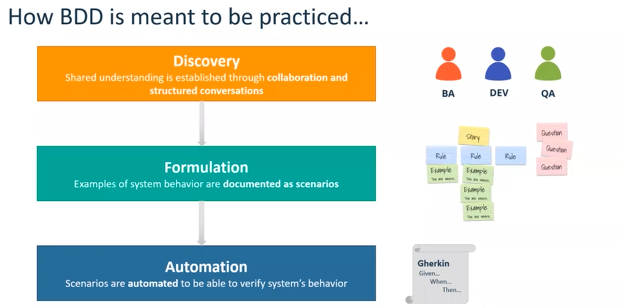Formulation
Formulation is the process of writing down the requirements in a way that can be understood by both technical and non-technical stakeholders.
This often involves creating acceptance criteria and scenarios that describe how the system should behave from the user’s perspective.
Gherkin Syntax
Reference | Cucumber
Gherkin uses a set of special keywords to give structure and meaning to
Name your BDD Scenarios
See also
Good Gherkin Scenario Titles
Write Gherkin so that people who don’t know the feature will understand it – and that includes the behavior scenario titles, too!
Keep your scenarios BRIEF
Keep your scenarios BRIEF | Cucumber
Over the years that we have been using Gherkin, our approach to writing scenarios has evolved. Because Gherkin is very close to natural language it's very easy to learn, but just like writing reports or stories, it takes practice to do it well. There are three main goals that we try to keep in mind when writing scenarios:
See more details in the following webinar by Gaspar Nagy, creator of Specflow:
Use a declarative style
Writing better Gherkin | Cucumber
There are several ways to make your Gherkin better.
Should Gherkin Steps Use First-Person or Third-Person?
Should Gherkin steps be written using first-person or third-person perspective? I recommend a consistent third-person point of view.
GherkinUFT Language
Gherkin language is used to document requirements and define test scenarios.


